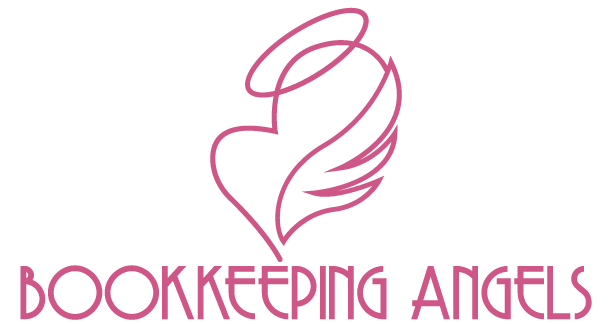BOOKKEEPING FAQs
FAQS
What is bookkeeping, and why is it important?
Bookkeeping is the process of recording, organising, and maintaining financial transactions for a business. It is important because it helps business owners track their income and expenses, maintain accurate records for tax purposes, manage cash flow, and make informed financial decisions. Proper bookkeeping ensures compliance with legal requirements.
What services do bookkeepers offer?
Bookkeepers provide a wide range of services, including:
- General ledger management: Organising financial transactions and balancing accounts.
- Accounts payable and receivable: Tracking and managing bills and payments.
- Bank reconciliation: Ensuring that bank statements match financial records.
- Payroll processing: Handling employee wages, benefits, and tax deductions.
- BAS preparation and lodgement: Preparing and lodging Business Activity Statements.
- Financial reporting: Creating balance sheets, profit and loss statements, and other financial reports.
- Superannuation management: Ensuring compliance with superannuation payments.
How is bookkeeping different from accounting?
While bookkeeping and accounting are related, they differ in scope and function:
- Bookkeeping involves the day-to-day recording of financial transactions and maintaining accurate records.
- Accounting involves interpreting, analysing, and summarising the financial data recorded by bookkeepers to help with decision-making, tax filings, and strategic planning.
What software do bookkeepers use?
Bookkeepers use a variety of accounting software programs to manage financial records. Popular bookkeeping software includes:
- QuickBooks
- Xero
- MYOB
- Sage
- Zoho Books
These software tools allow for efficient record-keeping, reporting, and integration with bank accounts and other financial systems.
How often should I update my bookkeeping records?
It is important to update your bookkeeping records regularly to ensure accuracy and avoid backlog. The frequency depends on the size and complexity of your business. For most small businesses, updating records on a weekly or monthly basis is recommended. However, larger businesses may need daily updates, especially if there are frequent transactions.
What is BAS, and why do I need to lodge it?
A Business Activity Statement (BAS) is a document submitted to the Australian Taxation Office (ATO) to report and pay taxes, including GST, PAYG withholding, and other business taxes. It is required for businesses registered for GST and is typically lodged quarterly or annually. Bookkeepers handle the preparation and submission of BAS to ensure that businesses comply with tax regulations and avoid penalties.
What is the difference between accounts payable and accounts receivable?
- Accounts Payable (AP) refers to the money a business owes to its suppliers and creditors. It includes bills, invoices, and other amounts due for payment.
- Accounts Receivable (AR) refers to the money owed to a business by its customers for goods or services provided on credit.
Managing both accounts payable and accounts receivable is vital for maintaining healthy cash flow.
How can bookkeeping help me with tax time?
Bookkeeping ensures that all your financial records are accurate and up to date, which is essential during tax time. Properly maintained books help you avoid mistakes, deductions you might miss, and penalties from the ATO. A bookkeeper will prepare necessary documents such as BAS reports and taxable income statements, making it easier for you to file taxes and stay compliant.
Do I really need a bookkeeper if my business is small?
Yes – and here’s why! Even small businesses can gain big benefits from professional bookkeeping. A bookkeeper helps keep your finances in order, stays on top of tax obligations, and frees up your time to focus on what you do best. Plus, outsourcing can be more affordable than hiring someone in-house – especially if your financial needs are straightforward.
How much does bookkeeping cost?
Bookkeeping costs can vary depending on your business size and the complexity of your finances. Some bookkeepers charge by the hour, while others offer fixed monthly packages. On average, small businesses might pay around $50 per hour. The best way to know what you’ll pay? Get a personalised quote based on your needs – no guesswork required!
How can I ensure my bookkeeping is secure?
To ensure the security of your financial data, follow these best practices:
- Use password protection and two-factor authentication for bookkeeping software.
- Regularly back up your financial records in cloud storage or secure servers.
- Grant access only to authorised personnel.
- Ensure that sensitive information like credit card details and bank account numbers are stored securely.
Can a bookkeeper help with budgeting and financial forecasting?
Yes, bookkeepers can assist with budgeting and financial forecasting by analysing past financial data and helping you create projections for future business needs. They can identify trends in your cash flow, suggest areas for cost savings, and help you plan for future growth.
What is superannuation, and why do I need to manage it?
Superannuation is a compulsory retirement savings fund in Australia, where employers contribute a percentage of their employees’ wages. Managing superannuation is important to ensure compliance with regulations, timely payments, and that employees receive the correct amount. A bookkeeper can manage superannuation contributions and handle the lodgement of superannuation funds for employees.
How do I choose the right bookkeeper for my business?
When choosing a bookkeeper for your business, consider the following factors:
- Experience and qualifications: Ensure they are certified and have experience with your industry.
- Software familiarity: Make sure they are proficient in the accounting software your business uses.
- Communication skills: They should be responsive, clear, and available for regular updates.
- References: Check reviews and testimonials from other clients to gauge their reputation.
What happens if I don’t maintain proper bookkeeping?
Failure to maintain proper bookkeeping can lead to several issues, including:
- Tax compliance problems, such as missed deadlines and penalties.
- Poor financial decision-making due to lack of visibility.
- Cash flow problems that could impact business operations.
- Difficulty obtaining financing or investment.
- Increased risk of fraud and financial mismanagement.
Proper bookkeeping is essential for long-term business success and sustainability.
Ready to take control of your business finances?
It’s easy to get started with Bookkeeping Angels. Contact us today to schedule a consultation and discover how our tailored solutions can support your business.






